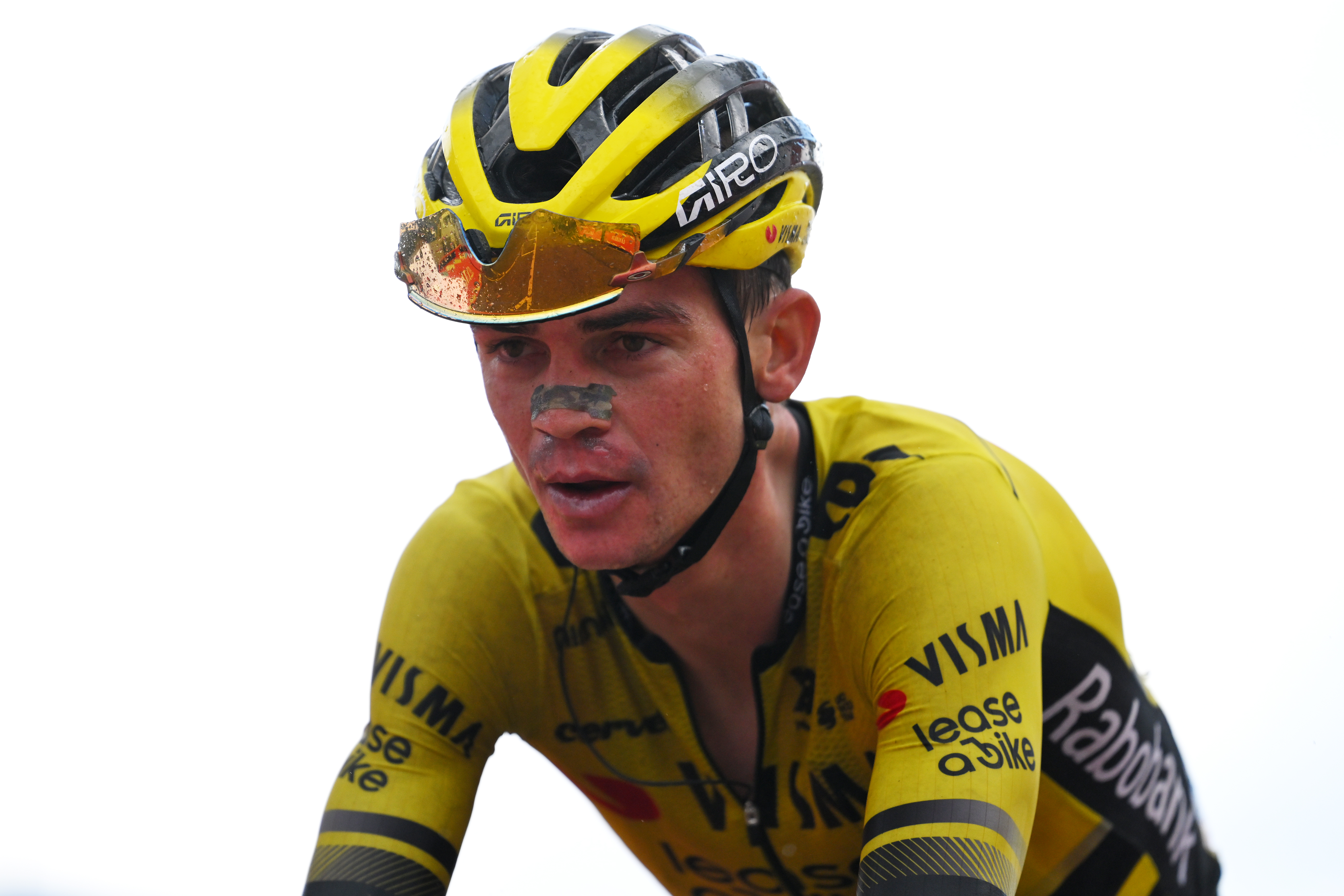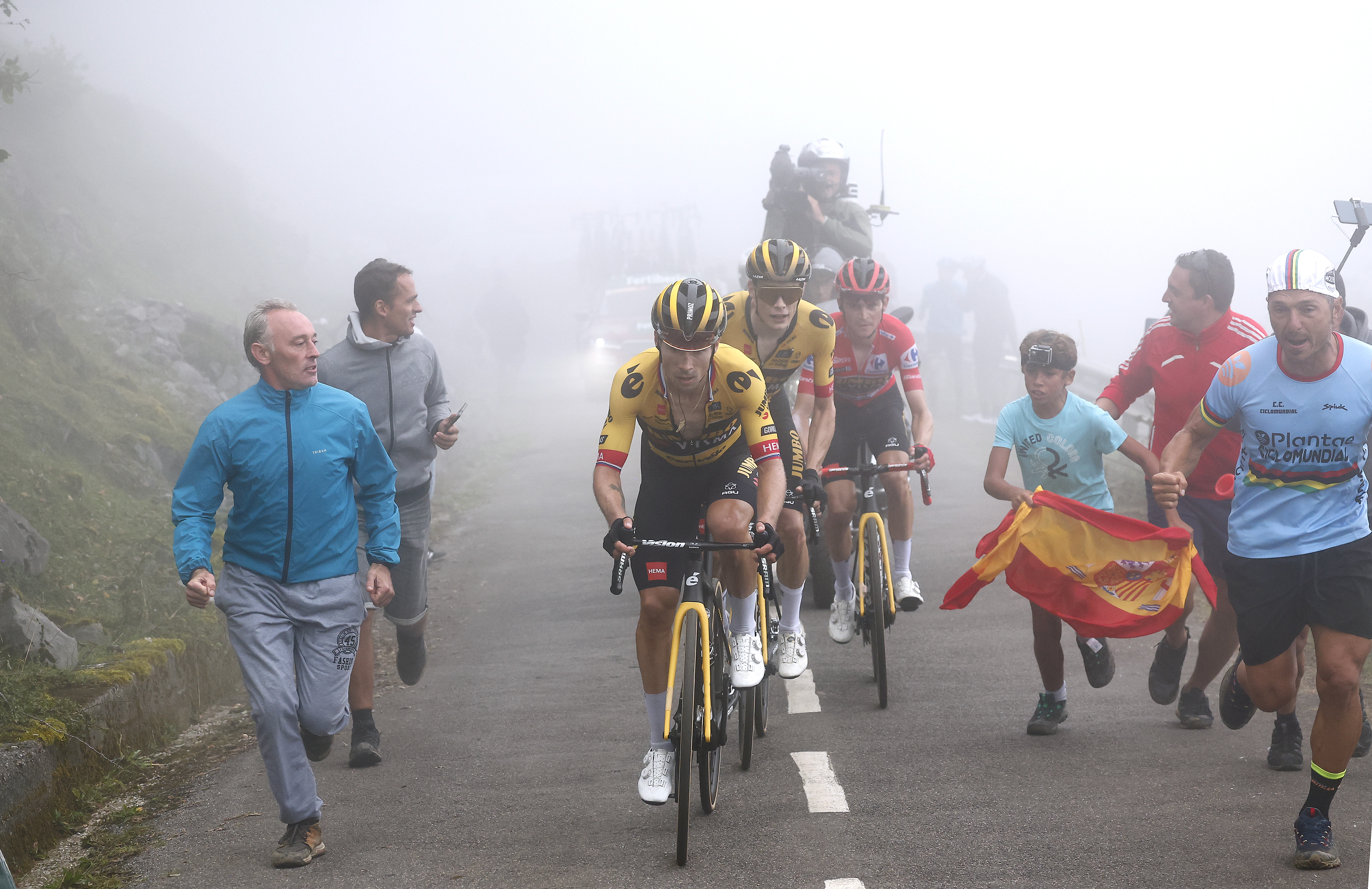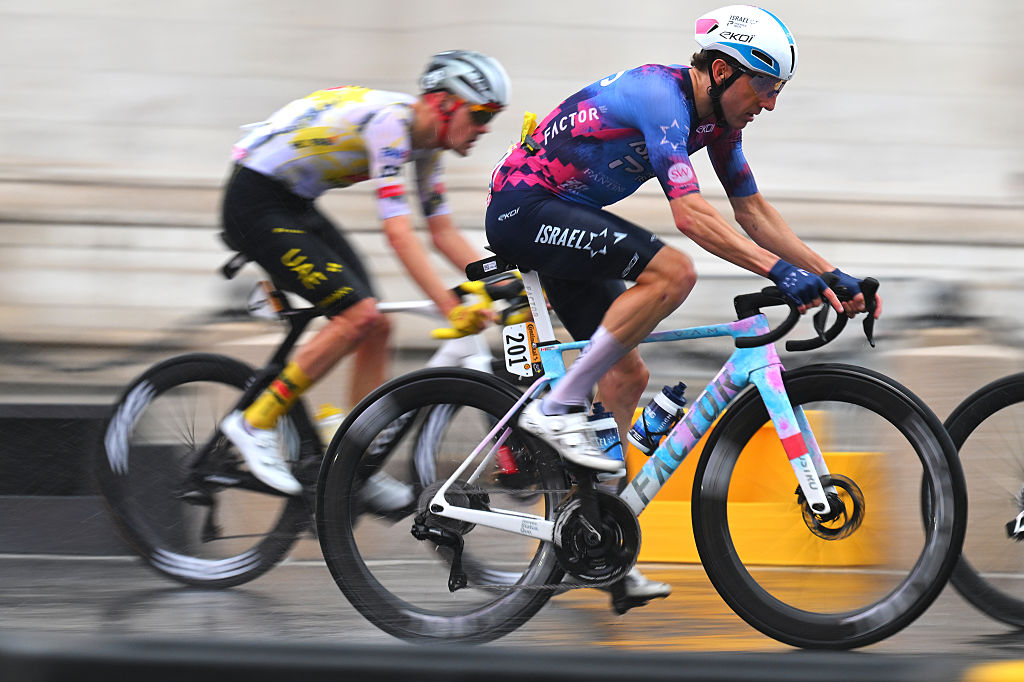'It's the kind of climb you live for' - 2023 Vuelta a España winner Sepp Kuss relishing return to Angliru
Visma-Lease a Bike racer feels ultra-steep Angliru favours climbing technique of teammate Jonas Vingegaard

The latest race content, interviews, features, reviews and expert buying guides, direct to your inbox!
You are now subscribed
Your newsletter sign-up was successful
Dreaded by some, adored by others - the Angliru is such a hard climb it's virtually impossible for anybody in the current Vuelta a España peloton not to have an opinion about it, and for Sepp Kuss, riding the 26% slopes of the Asturian monster ascent, is a moment he always savours.
The Angliru was last visited by the Vuelta a España in 2023, the year Kuss won the race outright. And even if he didn't have his best day on the ascent two summers ago, nonetheless, his experiences that day most likely place the summit in his 'unfinished business' category - perhaps one he could resolve this afternoon.
The Angliru is famous for its dense lines of cycling-mad Asturian fans supporting the riders all the way up. Kuss also knows the ascent from the 2020 Vuelta, when it was bereft of any spectators in the pandemic-blighted edition.
But on both occasions, Kuss was on the winning team, in 2020 as support for Primož Roglič and again in 2023, for himself. Will 2025, with Jonas Vingegaard in the lead, be three out of three?
"It's obviously a super hard climb, it's tough to say if [it's the] hardest one I've ever done, but it is incredibly steep," Kuss tells Cyclingnews, "but actually - it's so consistently steep so you can really get into a rhythm. The main thing is about managing that effort."
"It always depends on what comes before on Angliru, too - this time round we have a longer stage than normal" - over 200 kilometres, more than 70 kilometres longer than in 2023, and almost 90 longer than in 2020 - "so whereas on shorter days you arrive relatively fresh, now with that flat section before, and the Cordal climb [preceding it], we'll see if it's different with that different kind of earlier fatigue."
The question of how much support teammates can give you is always a one for debate on the Angliru, with some - like four-times Vuelta winner Roberto Heras - saying that having that extra backing is more important psychologically than physically. But he and Kuss both coincide that teammates can be useful both on the first lower slopes, where it's not such a hard ascent, and then on the last part, where it turns briefly flatter and even downhill for a kilometre.
The latest race content, interviews, features, reviews and expert buying guides, direct to your inbox!
"I don't think you can get so much support on such a steep climb - like I said, it's about managing your effort, because you're not climbing at a crazy speed when you can get help from drafting," Kuss continues. "In fact, if you follow somebody too long on a climb like that, you'll go too slow, maybe."
"But they are good to have there on the first ramp before that middle section, and again on the end where it's a bit flat. But either way, it's a really brutal effort."

The rider who could perhaps make or break the Vuelta today on the Angliru is race leader and teammate Jonas Vingegaard, who, like Kuss, has raced the Asturian climb back in 2020 and in 2023. Compared to many other riders when the ascent's slopes reach 25% and higher, the Dane will be in a good place, Kuss says.
"He's really light and that is a big advantage on such a steep climb," Kuss tells Cyclingnews. "Up to now, we've had more of the power climbs, suited to the bigger guys, and he's already shown how good he can be there. But then on these really steep climbs, which are really power-to-weight, that's good for him too."
The rain will almost certainly not be putting in an appearance, but it can have a huge effect on the outcome of a climb as steep as the Angliru. In 2013, Vincenzo Nibali's team claimed that one of the reasons they could not close the gap on overall winner Chris Horner was the wetter weather, which made it impossible for Nibali to ascend in the riding style he would have liked.
"If a rider [is] standing a lot, then it's not ideal if it's wet, and a lot depends on a rider's characteristics as a climber," Kuss adds. "But the weather can always change really fast; it can be foggy, too."
Kuss says that his current form is an '8 or 9' out of 10, pointing out that most of the final climbs so far in the Vuelta have been "quite hard for me because they've started off super-fast and you have to pace yourself. But I always feel good after the Tour and I do this year too."
"But in any case, it's one of my favourite climbs, the kind that you live for - the mythical climbs, the big stages.
"I'm a bit scared, but a bit excited too, and I've always had good feelings there."
Alasdair Fotheringham has been reporting on cycling since 1991. He has covered every Tour de France since 1992 bar one, as well as numerous other bike races of all shapes and sizes, ranging from the Olympic Games in 2008 to the now sadly defunct Subida a Urkiola hill climb in Spain. As well as working for Cyclingnews, he has also written for The Independent, The Guardian, ProCycling, The Express and Reuters.
You must confirm your public display name before commenting
Please logout and then login again, you will then be prompted to enter your display name.

